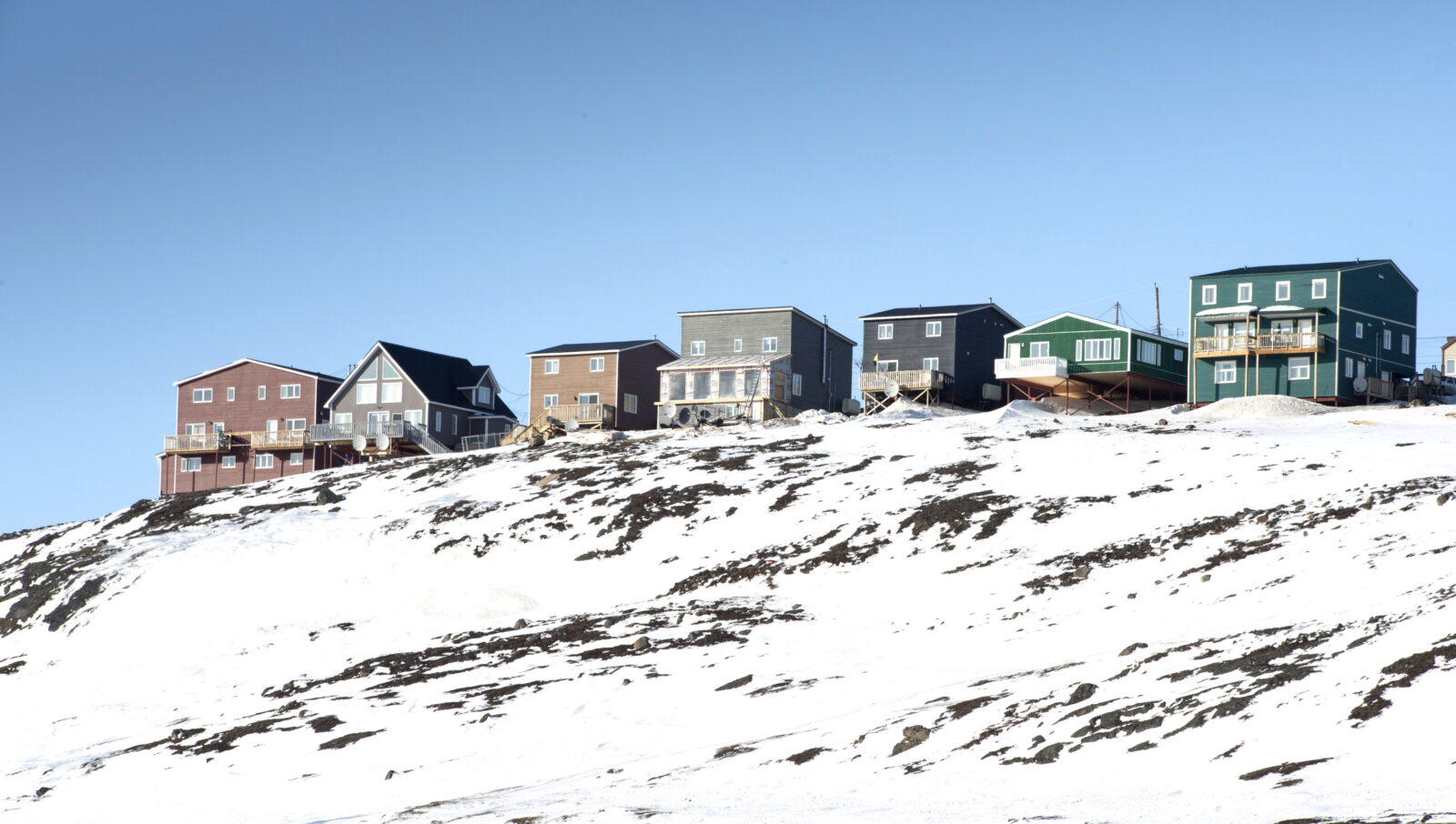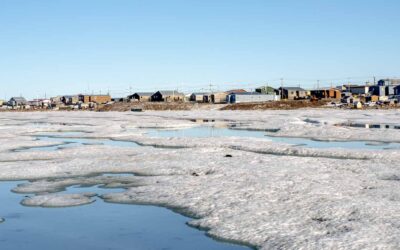VANCOUVER / Unceded xʷməθkʷəy̓əm, Sḵwx̱wú7mesh and səlilwətaɬ territories, 27 JUNE 2024—A scoping paper released today explores a new approach to address a concern Indigenous Peoples have been raising for decades: poor quality homes are causing severe health impacts in Indigenous communities across Canada. The paper is the first in a series that is part of the Healthy Energy Homes project, a partnership between the Canadian Climate Institute’s Indigenous Research stream and Indigenous Clean Energy.
The scoping paper, Beyond Sustainability: The Power of Indigenous Healthy Energy Homes, shows that current approaches to housing in Indigenous communities are rooted in a colonial legacy that has resulted in unhealthy housing conditions that include poor ventilation, overcrowding, and homes that are unsuitable for their location or environment. This has led to a variety of severe health challenges—thousands of people in communities suffer from respiratory, cardiovascular, and mental illnesses that are either aggravated or directly caused by inadequate and unsafe housing. For example, tuberculosis transmission is at least 20 times higher among Indigenous people than non-Indigenous people. These unsafe housing conditions and related health challenges are also made worse by climate change impacts such as heat waves.
Investing in Healthy Energy Homes that are energy-efficient, climate resilient, and support the well-being of inhabitants could address many of these challenges and unlock multiple benefits including reduced healthcare costs, emissions reductions, and savings for households. The paper finds that doing this will require a new approach in which housing strategies—and funding decisions—take a holistic view of housing issues and are developed in partnership with Indigenous communities.”
Beyond Sustainability is the first part of a larger project—undertaken in collaboration between the Climate Institute’s Indigenous Research stream and Indigenous Clean Energy—that focuses on policy changes for unlocking positive interconnections between Indigenous housing, energy, and health. This first scoping paper, which draws upon findings from literature and dialogue with experts and Indigenous rightsholders, sets the foundation for the broader project and provides important context to both the challenges and innovative solutions linked to housing in Indigenous communities.
QUOTES
“This collaborative paper has brought together experts from across sectors and communities to work together to show how interconnected Indigenous housing and health outcomes are. Building Healthy Energy Homes for communities could deliver nested benefits that help address poor health outcomes in Indigenous communities, reducing emissions, and building climate resilience.”
—Janna Wale, Policy Advisor, Indigenous Research, Canadian Climate Institute
“Proactively investing in Indigenous housing that is climate resilient and energy efficient can offset health costs later down the road. Investing in long-term solutions that take a different approach to housing will benefit both those who are living in healthier homes and communities as a whole. Healthy Energy Homes can help relieve the pressure on overburdened healthcare systems and, if led by and done in partnership with Indigenous communities, support the process of reconciliation.”
—Maria Shallard, Director, Indigenous Research, Canadian Climate Institute
“Healthy Energy Homes is a new concept in housing, one that is centered on the people and community, as well as delivering on energy efficiency, cultural values, and greenhouse gas reduction. The housing situation in Indigenous communities has been a long-standing problem that will continue unless all orders of government not only provide further investments of time and money but, most importantly, take a different and more coordinated, holistic approach to address this issue, one that is informed by an Indigenous-led approach to Indigenous housing.”
—Ian Scholten, Director of Efficiency and Transportation, Indigenous Clean Energy
“In almost every Indigenous community, housing remains a major issue, if not the most pressing one. Unfortunately, many homes are built inefficiently, leading to poor health outcomes and shorter building lifespans, exacerbating the housing crisis. This report highlights how promoting sustainable Indigenous housing can offer a high return on investment by reducing greenhouse gas emissions and fostering healthier communities. We hope this scoping paper sparks broader discussions about mobilizing capital to seize this opportunity. Finding solutions will require creativity and bravery, but the urgency and potential impact are too significant to ignore.”
—James Jenkins, Executive Director, Indigenous Clean Energy
Contact
Janina Stajic
Communications Manager
250-618-2360
jstajic@climateinstitute.ca



